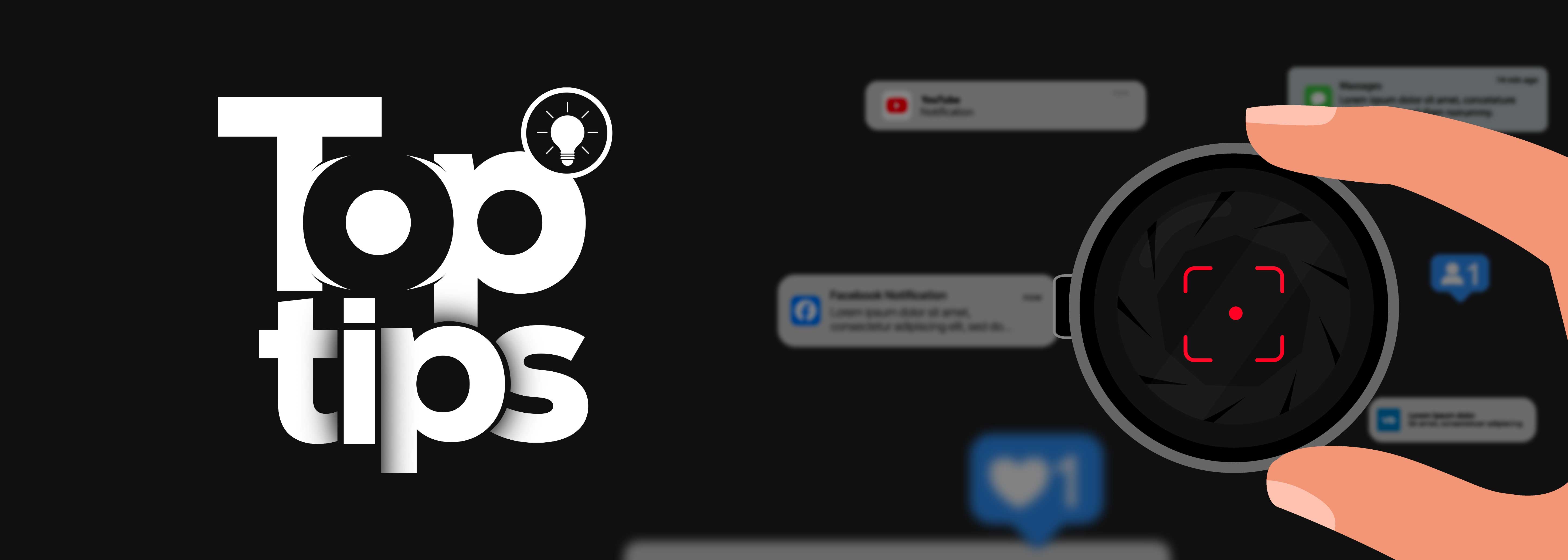Top tips for staying focused in a notification-heavy world
Top tips is a weekly column where we highlight what’s trending in the tech world and list ways to explore these trends. This week, we’re tackling one of modern work’s biggest challenges: staying focused in a world overflowing with notifications.

Focus has become an uncommon ability in today's hyper-connected world. Every ping, pop-up, and alert demands our attention, pulling us away from focused work and substance thinking. Whether it's your phone lighting up with messages, your desktop pushing email notifications, or collaboration software beeping nonstop, the effect is the same: broken focus and mental exhaustion.
According to the 2025 Clockify Workplace Distractions report, employees spend an average of 127 hours per year simply regaining focus after distraction. This time accounts for more than three work weeks in total that are used to get back the concentration that was lost due to the constant pings, alerts, and other digital noise. According to the research, frequent switching of contexts between apps and notifications considerably decreases productivity and raises the level of mental fatigue. To put it differently, it's not the technology that makes us lose our way, but the continuous flow of uncontrolled interruptions and our tendency to respond immediately. With some effort, we can make a few tweaks, be a little more aware, and still be able to keep in touch without letting the incessant stream of alerts take over our time.
Here are four practical ways to stay focused in a notification-heavy world:
1. Audit your alerts
You might be shocked if you take a step back and look at how many alerts you actually get each day. Many of them are neither required nor urgent, including system upgrades, chat messages, emails, and app reminders. Review your device settings and disable non-urgent alerts. Save only those that really need to be addressed right away, such as direct communications from your team or critical security updates. This little bit of digital housekeeping may help you focus on what's really important and drastically reduce distractions.
2. Schedule focus windows
To truly get meaningful work done, it's essential to carve out dedicated periods in your day where you're free from interruptions. Try setting aside time when you won't be disturbed, and use features like Do Not Disturb or Focus Mode on your devices to silence notifications so you can concentrate fully on what matters most. Most devices come with these built-in features that you can customize to let only important alerts through. It’s a good idea to let your team or colleagues know when you’re entering focus time; being open about it helps avoid misunderstandings and often encourages everyone to adopt similar habits. Just two focused sessions of about an hour to an hour and a half each day can really boost your productivity and clear your mind.
3. Centralize and simplify communication
Going back and forth between several communication channels like emails, chats, project tools, and social platforms—can really drain your energy. Don't let each app notification interrupt you; organize your digital communication. If possible, integrate your tools so messages from different platforms appear in one place. Alternatively, establish clear norms within your team: Use chat for urgent queries, email for updates, and shared workspaces for documentation. This saves you from an abundance of messages and the tiring process of changing your focus all the time.
4. Practice digital mindfulness
It’s easy to react the moment a notification pops up. Most of us do it without even thinking. But breaking that habit starts with awareness. The next time your phone buzzes or your inbox pings, take a second before you respond and ask yourself, “Does this really need my attention right now?” Try grouping your message checks into specific times instead of reacting instantly to every alert. And remember to give your mind short breaks away from screens—stretch a little, grab some water, or just breathe. The goal isn’t to unplug completely but to be more intentional about when and how you connect. With time, you’ll notice that you feel calmer, more focused, and far less pulled in every direction.
In a world that expects us to be always on, choosing when to unplug is actually a powerful way to boost your productivity. It’s not about cutting technology out completely but using it thoughtfully and with intention. By building mindful habits and tweaking a few settings, you can take back control of your attention, allowing yourself the space to focus deeply and create meaningful work.